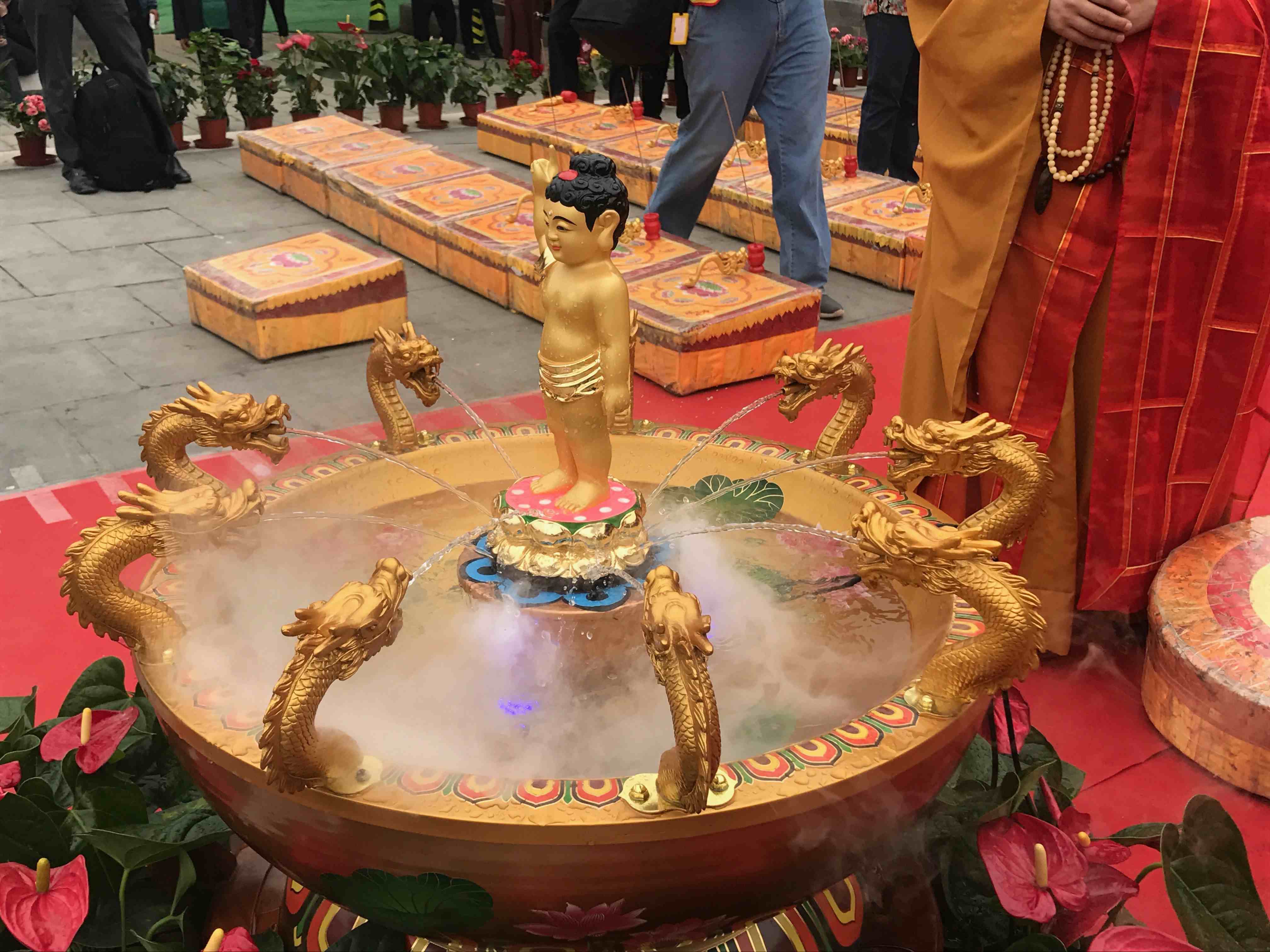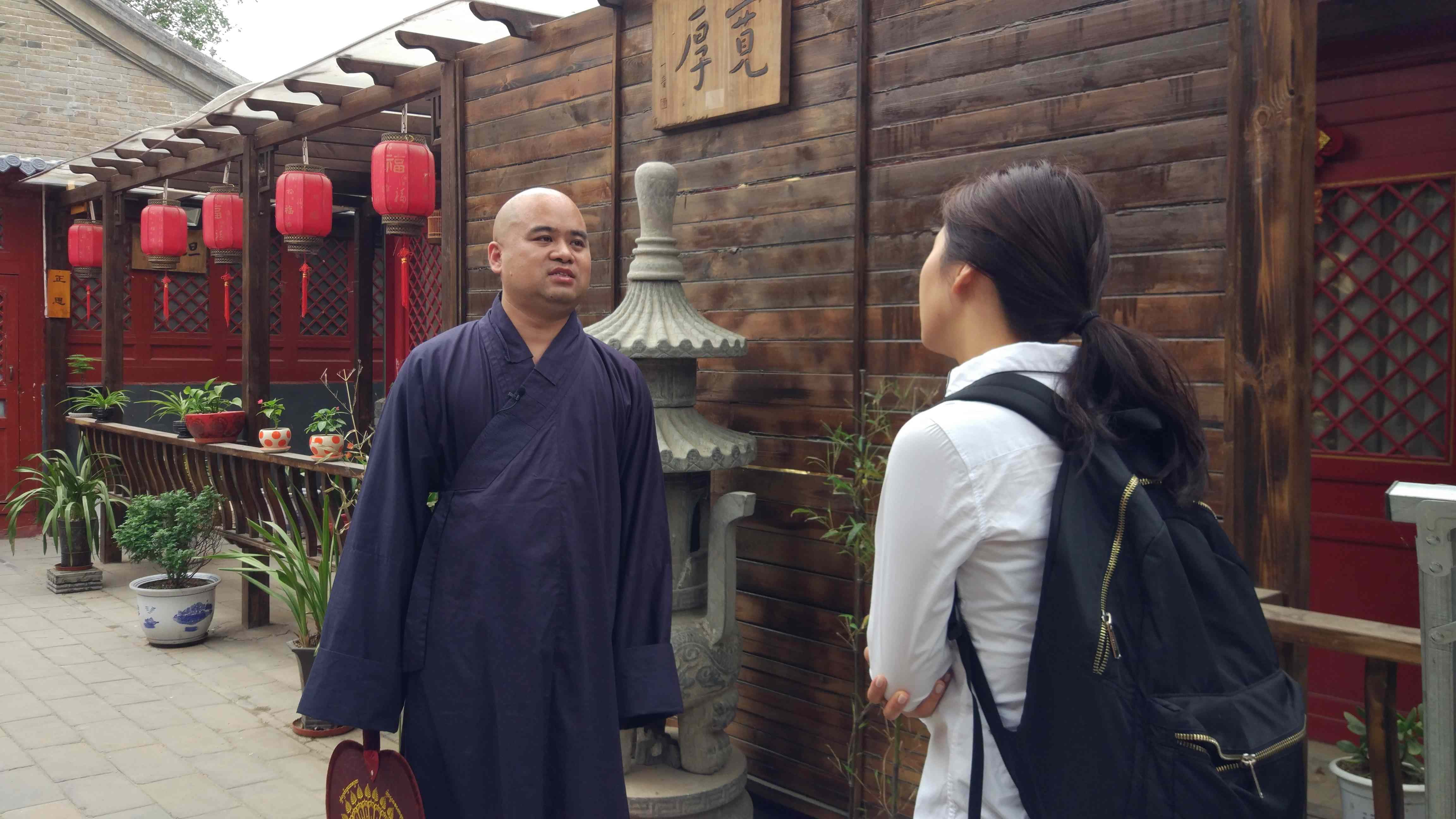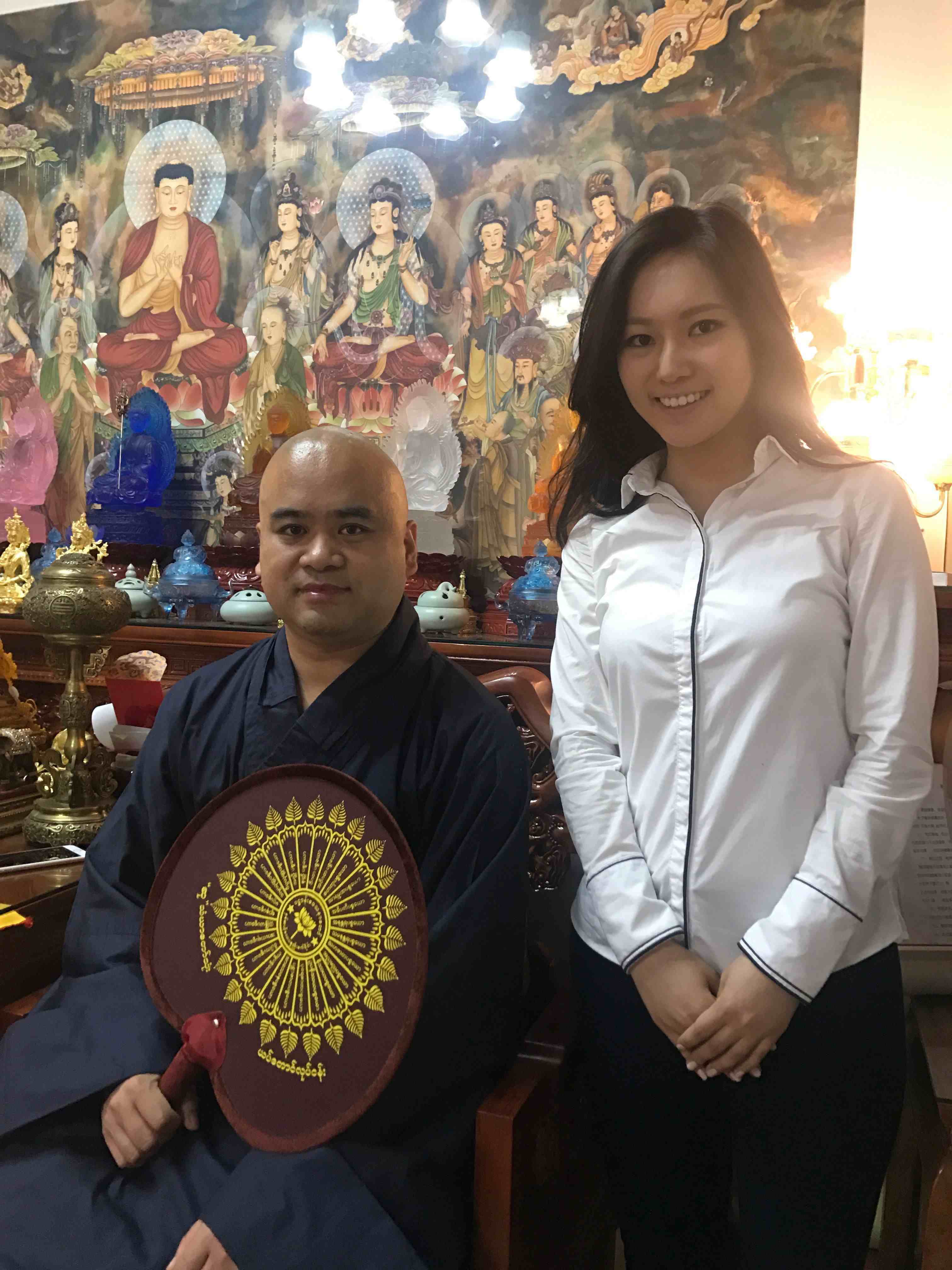By CGTN's Grace Shao
Buddha's Birthday, falling this year on Wednesday, is a day celebrated by Buddhists across the globe to commemorate the birth of Prince Siddhartha Gautama, founder of the religion and Buddha himself. In China, Buddhists celebrate this day at temples by literally bathing the Buddha, reciting sutras and lighting incense.

CGTN Photo
Buddhism, along with Taoism and Confucianism, were the three main religious or philosophical beliefs in ancient China. All of them have helped shape Chinese culture and traditions in one form or another. At You Sheng temple in Beijing, hundreds participate in the sacred ceremony for his birthday every year. Believers range from toddlers to monks in their late seventies.
It is said that when Buddha was born, dragons spat water out to bathe him. Master Ran Jiao from You Sheng Temple said, “So on this day, we bathe Buddha in sacred water to show him our devotion and gratitude and to cleanse our own minds." The practice is not only a religious ceremony, but also a display of China's 5,000-year-old history and civilization.

CGTN Photo
The day is not only to celebrate Buddha's birthday but also an opportunity for believers to introspect. For some monks the day is a reminder of the day when they found Buddha himself.

CGTN Photo
Often thought of as a religion followed by an older generation, Buddhism is actually becoming more and more popular amongst younger people. Master Ran Jiao said the demographic of Buddhists in China is very diverse, and you would be surprised that there is a large group of followers from younger generations.

CGTN Photo
“Because Buddhism is not inherited, it is a choice, the number of people born into religious families and those who choose to join the faith after adulthood are on a par," says Master Ran Jiao. "Just because the parents are Buddhists does not mean the children are automatically believers."
1km










